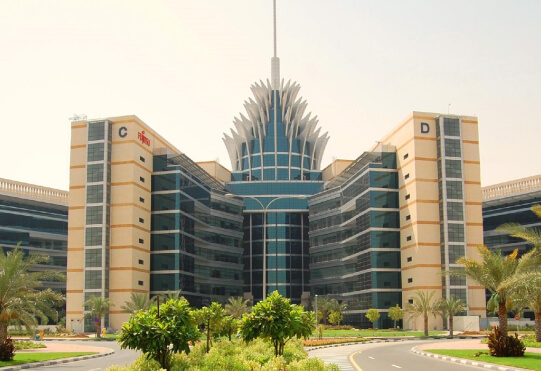As of 2023, Saudi Arabia’s Information and Communications Technology (ICT) sector is an example of the nation’s commitment to innovation and technological progress. This sector has earned its reputation as the largest and fastest-growing market in the Middle East and North Africa region. The Kingdom’s grand vision for technological transformation is garnering international attention, drawing multinational ICT providers to the prestigious Global Cybersecurity Forum, taking place on November 1-2 of 2023 in Riyadh.
Saudi Arabia’s Vision 2030 charts a new course for the nation’s future. A central pillar of this vision is the diversification of the economy away from traditional oil-based revenues and toward a more sustainable, knowledge-based economy. The ICT sector plays a pivotal role in achieving these goals, and its significance cannot be overstated.
In its 2022 report, the National Transformation Programme (NTP), a key vehicle for implementing Vision 2030, proudly noted that Saudi Arabia offers an impressive 6,000 digital government services, equivalent to 97% of the total services available. This substantial achievement has positioned the Kingdom as a global leader in e-governance.
Established in 2019, the Saudi Data and Artificial Intelligence Authority (SDAIA) is another prominent government organization that oversees and promotes the development and utilization of data and artificial intelligence technologies within the Kingdom. Vision 2030 includes objectives to train 40% of the workforce in fundamental data and AI skills. The Kingdom achieved top rankings for internet usage and the percentage of individuals with standard ICT skills, and according to Stanford University’s “AI Index Report 2023,” Saudi Arabia ranked second globally in terms of AI awareness in society, surpassed only by China.
Saudi Arabia’s commitment to digital government services has not gone unnoticed on the international stage. In 2022, the nation secured a noteworthy 31st place in the United Nations e-Government Development Index, a testament to its efforts in providing efficient and accessible online government services. Moreover, the Kingdom claimed the top spot in the MENA region for digital government services, according to the Government Electronic and Mobile Services Maturity Index in 2021.
To demonstrate its dedication to innovation, in June of 2023, the Ministry of Justice launched a virtual notary public system. This groundbreaking initiative enables users to access remote electronic notarization services, streamlining and modernizing a traditionally bureaucratic process.
The Saudi government’s vision extends beyond digital government services. It is taking concrete steps to digitally transform every aspect of society, from government services to banking and manufacturing. The ambitious Future Factories Programme aims to ensure the adoption of Industry 4.0 automated solutions in more than 4,000 factories, underscoring the nation’s commitment to ushering in a new era of automation and technological advancement.
The Kingdom’s technological ambitions have attracted investments from global tech giants, shaping the landscape of its ICT sector and propelling it to the forefront of digital innovation.
In February of 2023, the US-based computer technology company, Oracle, unveiled plans to invest $1.5 billion in expanding its cloud infrastructure in Saudi Arabia. This investment includes the establishment of a new public cloud region in Riyadh, the expansion of an existing region in Jeddah, and the development of a third cloud region in the futuristic city of NEOM. In the same month, Microsoft announced its intention to invest $2.1 billion in constructing a global super-scaler cloud in the Kingdom. Not to be left out, Google and Huawei have also pledged significant investments in cloud development within Saudi Arabia, adding to the nation’s growing tech infrastructure.
These investments by global tech giants have boosted local companies’ adoption of cloud services, and according to a 2023 survey by global consulting firm KPMG, a remarkable 88% of businesses in Saudi Arabia now consider themselves advanced in cloud services.
Saudi Arabia’s tech evolution isn’t driven only by foreign investments. Collaborations with local partners also play a crucial role in the Kingdom’s digital transformation. In March of 2023, Saudi Aramco signed a non-binding memorandum of understanding with Samsung Electronics, outlining a strategic collaboration to localize an industrial 5G tech ecosystem. This partnership aims to further the digital transformation of the Kingdom’s industrial sectors, focusing on energy, petrochemicals, and manufacturing. Saudi Aramco has been actively involved in digital transformation efforts, having signed more than 100 agreements worth $7.2 billion in January of 2023.
Smart cities in Saudi Arabia are part of the country’s ambitious vision to transform its urban centers into technologically advanced, sustainable, and efficient hubs.
NEOM is one of the most high-profile smart city projects in Saudi Arabia. It is a futuristic city in the northwestern part of the country near the Red Sea. The city aims to be a global hub for innovation and technology, focusing on sectors like renewable energy, biotechnology, and AI. It will be powered by renewable energy sources and will incorporate cutting-edge technologies for transportation, communication, and healthcare. NEOM has also started investing in new technologies, with $1 billion allocated to creating a metaverse for its citizens.
The capital city of Saudi Arabia, Riyadh, has been actively working on becoming a smart city, too. Initiatives include the implementation of smart transportation systems, the use of renewable energy, and the development of smart grids to manage energy resources more efficiently.
The unprecedented growth and ambitious plans of the Kingdom make it an attractive market for medium-sized foreign IT companies, as well as individual talent. Competing with the UAE for the title of the regional IT hub, Saudi Arabia possesses the market size advantage, exceeding all other GCC countries combined. With current developments and future strategies in place, it is only a matter of time before Saudi Arabia’s regional leadership becomes a reality.



